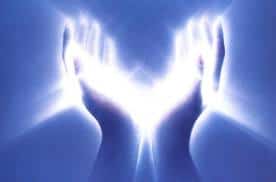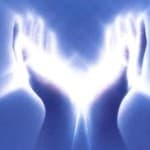Why do we find different names for God in the Torah?
Different names correspond to the different ways in which God reveals Himself in the world. The Tetragrammaton, the special name composed of the four letters Yud-Hey-Vav-Hey, corresponds to a level of Divine revelation that was concealed before Moses’ time.
I revealed Myself to Abraham, Isaac and Jacob as El Shaddai [God Almighty]. But I was not known to them through My name Y-H-V-H. (Ex. 6:3)
What is the significance of these two names of God? Why did only Moses’ generation merit knowledge of the Tetragrammaton?
In the same prophetic communication to Moses, God contrasted the Patriarchs’ ties to the Land of Israel with that of their descendants. Abraham, Isaac, and Jacob were only travelers and foreigners in the Land:
I made My covenant with them, giving them the Land of Canaan, the land of their wanderings, where they lived as foreigners.” (Ex. 6:4)
Their descendants, on the other hand, were destined to settle permanently in the Land:
I will give it to you as an eternal inheritance” (Ex. 6:8).
Is there some connection between the different names for God and residence in Eretz Yisrael?
A Higher Level of Providence
Dwelling in the Land of Israel means living with a greater degree of Divine providence. It is “a land constantly under the scrutiny of the Eternal, your God; the eyes of the Eternal your God are on it at all times” (Deut. 11:12). God gave Eretz Yisrael to the Jewish people as an eternal inheritance, so that they will always benefit from this unparalleled level of Divine providence. God’s providence will never leave the people of Israel; their history transcends the laws of nature.
This level of Divine guidance was only possible after they became a nation. Individuals, even the most righteous, may waver and stumble. Therefore, the Patriarchs could only be sojourners in Eretz Yisrael. They could only merit the Land’s preternatural providence in a temporary, sporadic fashion.
The name Shaddai comes from the word shiddud, meaning ‘to intervene.’ This name for God implies occasional Divine intervention in the natural realm. This was the degree of providence that the Avot experienced. They lived in a world of natural forces – with occasional miracles. They were but travelers in the Land of Israel. God was thus revealed to them as El Shaddai.
With the formation of Israel as a nation, however, the special providence of the Land of Israel became the Jewish people’s permanent inheritance. The generation of Moses was granted a higher revelation of God’s providence, as reflected in the name Y-H-V-H. This Divine name comes from the word lehavot, ‘to cause to exist.’ Their world was no longer a universe ruled by the forces of nature. They merited a constant, direct connection to the One Who continually creates and sustains all existence.
(Sapphire from the Land of Israel. Adapted from Midbar Shur, pp. 293-297.)
Copyright © 2013 by Chanan Morrison

